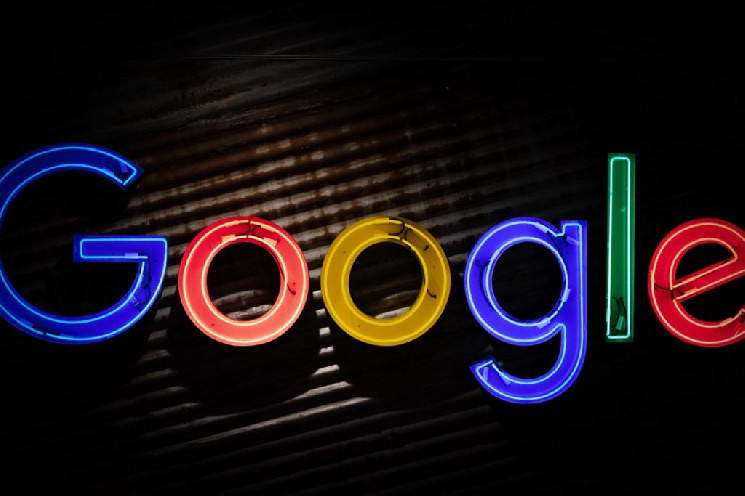Major news in the last few hours: Google Cloud will soon become a validator on Tezos Network. Integrations such as the one promoted by Google and Tezos demonstrate the interest the tech giants are having in blockchain and Web3 projects.
They can also inspire confidence in other companies interested in investing in the sector, knowing that they can do so using the infrastructure with the resilience provided by companies like Google.
Google will be validator on the Tezos network: all the details
As anticipated, Google’s cloud computing operator will become a validator on the Tezos network. This news means that there will be many new features coming.
Specifically, Google Cloud enterprise customers will be able to deploy Tezos nodes, a type of computer that runs blockchain software to validate and store transaction history, in order to create Web3 applications on the network.
The integration with Tezos marks Google Cloud’s latest integration with a blockchain network. Indeed, the platform began running a node hosting service for Ethereum projects in October, and then shortly thereafter became a validator on Solana.
As anticipated above, such integrations demonstrate the interest that technology giants increasingly have in blockchain and Web3 projects. They also inspire confidence in all other potential companies in the field.
These entities know that they can enter the industry and can do so using an infrastructure with the size and resilience like Google’s.
Google Cloud has previously highlighted the relationship between accounts compromised by malicious actors to mine cryptocurrency, suggesting that the company is attuned to the specific security risks present in the digital asset sector.
Google and the cloud-based Blockchain Node service for Ethereum
Google recently said it will launch a cloud-based node engine for Ethereum projects. The company said its Google Cloud Blockchain Node Engine will be a fully managed node hosting service that will minimize the need for node operations.
This means that Google will be responsible for monitoring the activity of nodes and restarting them during outages. A node is a type of computer that runs a blockchain’s software to validate and store transaction history on a blockchain.
At launch, Google will only support Ethereum nodes. In this regard, in its announcement, Google stated the following:
“The blockchain is changing the way the world stores and moves its information.”
Moreover, earlier this month, Google partnered with cryptocurrency exchange Coinbase to provide cryptocurrency payments for its cloud services. Meanwhile, in September, Google Cloud and BNB Chain announced a partnership to support the growth of early-stage Web3 startups.
Finally, in January Google announced that it was creating a digital asset team for Google Cloud, demonstrating its commitment to creating Web3 projects.
Not just Tezos, Google is also a validator on Solana
In November, Solana’s native $SOL token rose about 15% after Google Cloud tagged the blockchain co-founder in a tweet that suggested a major revelation was in sight
“Hey @aeyakovenko,” the cloud services giant tweeted Saturday , “Should we tell our followers the big news?”
Google Cloud, an hour after $SOL had jumped, tweeted what it was all about:
“Now that we’ve got your attention… check it out: Google Cloud is running a Solana validator that produces blocks to join and validate the network.
Even though it was such a vague disclosure, it was still able to move the market. Hence, it may not be technically against financial regulations, and it raises the question of whether it is fair to raise the price of an asset with security-like qualities in this way.
Solana, which so far has not lived up to the hype due to an industrial-grade blockchain suitable for modern finance, is undergoing an infrastructure overhaul overseen by Jump Crypto.
Google and the partnership with Coinbase: what is it all about?
In late 2022, Google had stated that it would begin accepting cryptocurrency payments for cloud services in 2023. Specifically, the tech giant said it would receive cryptocurrency payment through an integration with cryptocurrency exchange Coinbase.
The crypto payments will initially be distributed to a handful of customers involved in Web3. Google will also use Coinbase’s custodial service, Coinbase Prime. Thomas Kurian, CEO of Google Cloud, said the following:
“We want to make building in Web3 faster and easier, and this partnership with Coinbase helps developers get one step closer to that goal.”
Brian Armstrong, co-founder and CEO of Coinbase, said:
“We couldn’t ask for a better partner to help us realize our vision of building a trusted bridge into the Web3 ecosystem.”
Shares of Coinbase rose more than 6% to $71.32 in afternoon trading upon arrival of the news. Owen Lau, analyst at Oppenheimer, commented on the matter:
“We believe more partnerships with traditional players will follow. As the cryptocurrency economy expands in the long run, Coinbase will look more like a built-in digital asset enabler than a pure cryptocurrency exchange.”
 en.cryptonomist.ch
en.cryptonomist.ch
